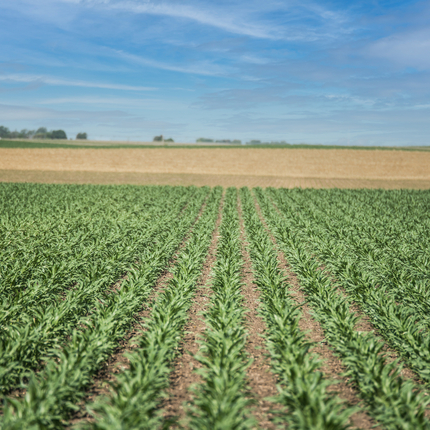The recently passed Consolidated Appropriations Act of 2023 paved the way for the U.S. Department of Agriculture (USDA) to create more transparency and legitimacy around agriculture carbon markets. This, combined with a funding increase for conservation technical assistance for producers, demonstrates Congress’ willingness to work together on programs that benefit both farmers and the environment.
The Growing Climate Solutions Act, a key piece of legislation included in the bill, will allow the USDA to develop a certification process for technical assistance providers and third-party certifiers of carbon markets. These voluntary markets provide a financial incentive for producers to implement farming practices that sequester carbon. It will be funded at $4.1 million per year from 2023 to 2027.
In addition, the bill outlines $25.5 billion for other programs that help producers, small businesses, and rural communities. These funds are in addition to federal dollars these programs receive annually.
Of note, the package includes an increase in funding for USDA’s Natural Resources Conservation Service (NRCS), including $800.9 million for Conservation Technical Assistance. Conservation Technical Assistance supports NRCS staff who work directly with producers to implement farming and ranching practices that improve soil health and water quality. This funding is a more than $40 million increase from 2022.
Funding levels for other beneficial programs, however, fell short of requests for increased support. The Rural Microentrepreneur Assistance Program, which provides revolving loans and grants to community organizations that offer low interest loans and technical assistance to microbusinesses, received $6 million—a decrease of $500,000 from 2022.
The Value-Added Producer Grant program retained its 2022 funding level of $16 million. Of this total, $13 million will go directly to agricultural producers via grants to expand their businesses through value-added products and services.
The Center will continue to monitor funding for these programs, particularly as discussions regarding the 2023 farm bill are underway.





